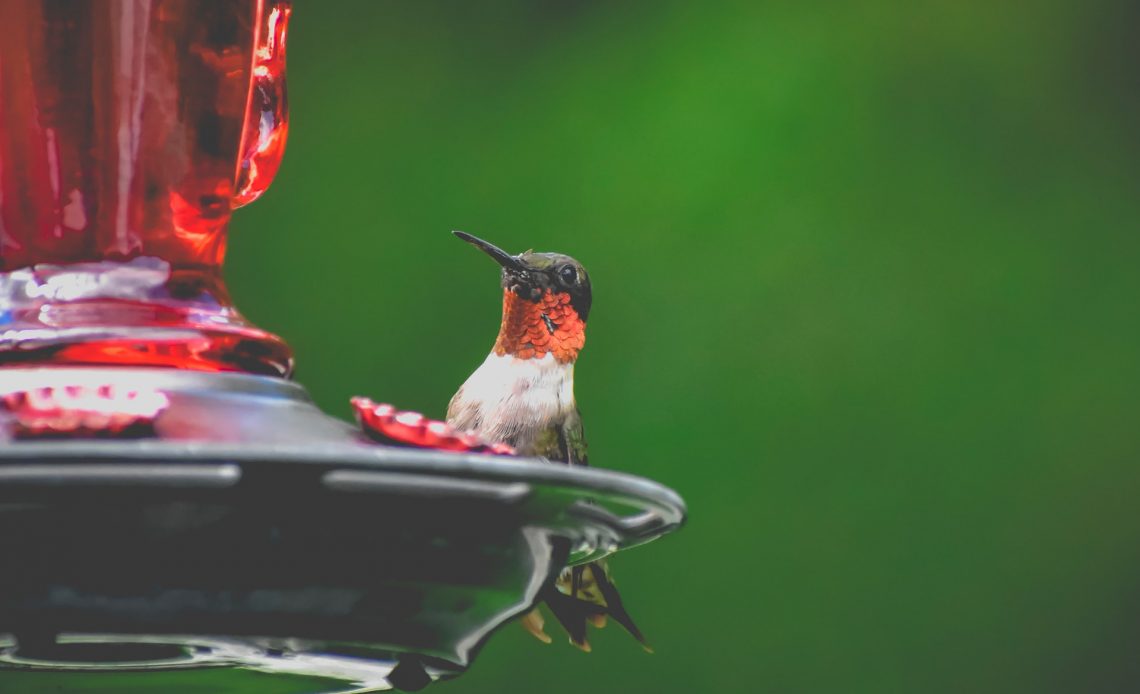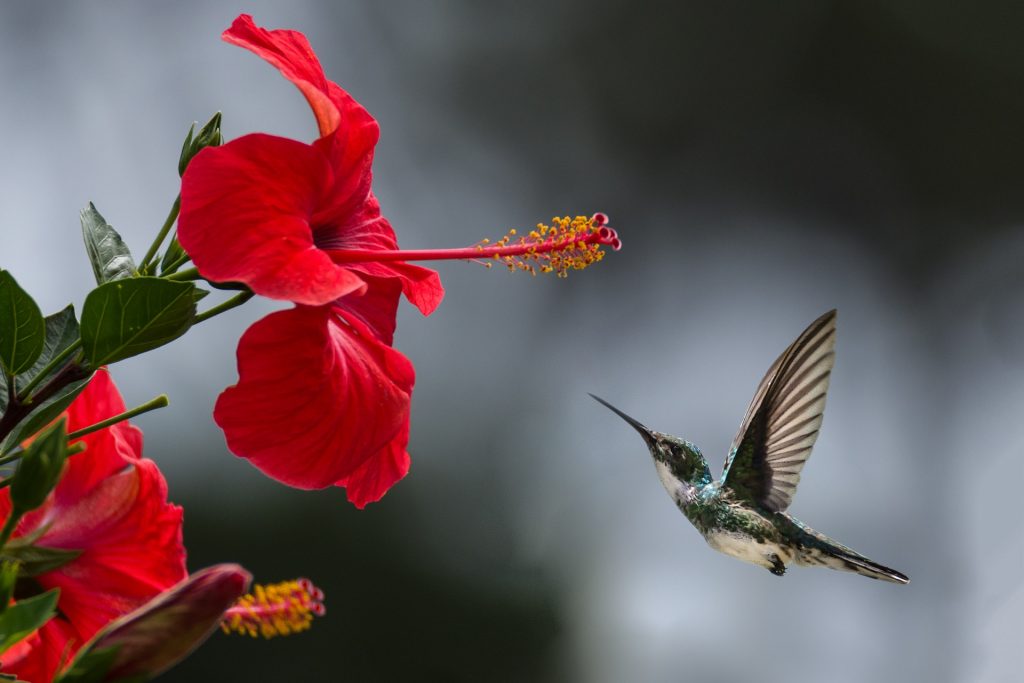

We’re here to help! Wild Yards is a completely free website that is 100% dedicated to helping you create a wildlife-friendly, sustainable yard. Read more
WildYards is reader-supported. When you buy a product through a link on our site, we may earn a comission. Every product is independently selected by our (obsessive) editors and our reviews are unbiased and objective. Read more about our mission or our privacy policy.
The change in temperature from one season to the next can have a major impact on the hummingbirds in your yard. As they flit from flower to feeder and back again, an observant birder may notice that they have a slightly different set of needs in the summer than they do in the winter (if they don’t migrate away from where you live during the colder months). So how often should you change out hummingbird food in the summer?
How long does hummingbird food last in hot weather?
Mold and bacteria can grow more quickly in the hotter months, so you will need to be more vigilant of your feeder during the summer. You should check your hummingbird feeder every day to ensure your nectar is still good, and you should change out any leftover nectar at least twice a week. This is especially true if the temperature in your area exceeds 90 degrees Fahrenheit during the summer.
Can hummingbird nectar get too hot?
Yes. The hotter weather during the summer can cause nectar to ferment more quickly, which causes it to spoil and become toxic to hummingbirds. This extra heat can also cause mold and bacteria to grow at an accelerated rate.
Should hummingbird feeders be in the sun or shade?
Your hummingbird food can last longer if you keep the feeder in the shade where it is not in direct sunlight. This will help the nectar to stay cool during the hottest parts of the day.
Do glass hummingbird feeders get too hot?
While it is true that glass feeders will get hotter in direct sunlight, you can also have issues with plastic feeders. Many plastic feeders can melt in extreme heat, which can be dangerous for your hummers. Your best option is to use a glass feeder and keep it in the shade so that it does not get too hot during the day.
Should you feed hummingbirds all summer?
Yes, it is best to maintain your hummingbird feeder throughout the summer. You should put your feeder out around one week before hummingbirds typically arrive in your area and leave it out until the last hummingbirds have gone for winter. If you live in an area where hummingbirds are present year-round, you should continue to maintain your feeder throughout the year.
How does hot weather affect hummingbirds?
As the temperature rises beyond 90 degrees Fahrenheit, the intense heat impacts hummingbirds in a variety of ways. Their energy levels and hydration are both primary concerns for hummingbirds during the summer, and they also experience lower reproduction rates.
By knowing which environmental effects are causing these struggles and doing everything in your power to alleviate them, you can support your hummers and keep your local hummingbird population strong.
How can I help hummingbirds during hot weather?
Now that you know how hot weather affects hummingbirds, there are a few steps you can take to make things easier for them this summer.
Changing out your hummingbird food often and keeping the feeder clean are only the first steps. Here are some other measures you can take to help your hummers beat the heat and keep them safe from disease.
Hummingbird Diseases that Thrive During Summer
Your hummingbird feeder should always be kept clean and sanitized, and during the summer you need to be extra vigilant. The following diseases are deadly to hummingbirds and can thrive in feeders that have been left out in hot weather:
- Aspergillosis – This is caused by airborne fungal spores that infect the hummingbird’s intestines and cause digestive issues.
- Avian Poxvirus – This is a tumor that grows on the beak of the hummingbird and makes it impossible for them to feed.
- Candidiasis – This is a fungal infection that forms on the hummingbird’s tongue. It is transmitted by feeding on infected nectar or water sources.
- Salmonella/Salmonellosis – This is the same bacteria that is harmful to humans, and it causes the hummingbird to experience diarrhea, dirty/ruffled feathers, and lack of energy.
Provide Water for Your Hummingbirds, Not Just Nectar
Hummingbirds need pure water to survive, just like every other living thing. They require a huge amount of energy in comparison to their body size, so the negative impacts of dehydration hit them hard.
Dealing with the hot weather in the summer requires even more energy, and their natural water sources are less plentiful. Since hummingbirds need more water during a season when there is less water to be found, many of them experience health issues caused by exhaustion and dehydration.
Here are a few ways you can make sure your hummingbirds have access to plenty of water this summer:
- Keep a clean birdbath in your yard and maintain it regularly
- Keep your feeder and nectar-producing plants in the shade
- Water your garden plentifully
- Attach a water mister to your hummingbird feeder
Maintain Plenty of Nectar-Producing Flowers
In addition to maintaining your hummingbird feeder and changing out the nectar regularly, you can also provide fresh nectar by maintaining plenty of the nectar-producing tubular plants that hummingbirds love.
Having plenty of brightly colored red and orange flowers can also attract more hummingbirds to your yard and ensure that they can find your feeder, which they are not naturally attracted to in the same way.
You should water your plants dutifully during the summer, as this will both keep your plants productive and provide more moisture for your hummingbirds.

How To Keep Hummingbirds Healthy in Summer
Summer can be a hard time of year for hummingbirds. Luckily, you now know exactly what to do to support them and keep your local population healthy.
Remember to change your hummingbird feeder at least twice a week, clean your feeder every time you change it, provide your hummers with a source of pure water, and fill your garden with colorful tubular flowers.
By taking these simple steps, you can make sure your hummingbirds stay healthy and happy even during the hottest months of the year.
